New Treatment for Peanut Allergy
There is some exciting news for children and their families with a history of peanut allergies. On September 13, 2019, the Allergenic Products Advisory Committee of the Food and Drug Administration (FDA) voted to recommend approval of a new oral immunotherapy product for children with peanut allergy.

Peanut is one of the most common foods that can be allergenic in children. It is also responsible for more severe and occasionally life-threatening reactions in highly sensitive children and adults. Adding to the concerns, in the U.S., peanut allergy in children has increased 21% since 2010, and nearly 2.5% of U.S. children may have an allergy to peanuts.
The current standard of care for the treatment of food allergies is the avoidance of the allergen (e.g., peanut) in conjunction with the treatment of anaphylaxis with self-injectable epinephrine devices (e.g., EpiPen, Auvi-Q, and/or Adrenaclick). It should be noted that parents of children with severe sensitivity to peanut live with constant fear of a life-threatening reaction triggered by an accidental exposure to peanut products.
Oral immunotherapy (OIT) refers to feeding an allergic individual an increasing amount of an allergen with the goal of increasing the threshold that triggers a reaction. The procedure entails feeding the allergenic food to the child, beginning with an extremely small dose and gradually increasing the dose at regular intervals while closely monitoring for adverse reactions. This must be done by in a hospital or in an allergist’s office where the allergist and staff are prepared to treat an adverse reaction without delay. The “escalation” of doses, as mentioned above, is typically performed in an allergist’s office, which is equipped to monitor and treat potential reactions whereas maintenance doses can be given at home.
“Desensitization” refers to the improvement in food challenge outcomes after therapy and relies on ongoing exposure to the allergen. If successfully accomplished, desensitization has the potential to substantially reduce the risk of a severe reaction following accidental exposure to the allergen and would hopefully minimize the anxiety of parents. This form of treatment also requires regular exposure to the food indefinitely in order to maintain the “desensitized” or “tolerant” state. OIT with peanut is unlikely to induce “sustained unresponsiveness” which refers to the retention of the protective benefit achieved through therapy. This sustained unresponsiveness is not reliant on the ongoing exposure to peanut.
The possible side effects of OIT include symptoms limited to the gastrointestinal tract such as itching of the mouth and/or lips, abdominal cramping, and diarrhea. Rarely more severe systemic reactions such as generalized hives (i.e., urticaria), swelling of tongue and/or throat (i.e., angioedema), difficulty in swallowing, shortness of breath, wheezing, and drop in blood pressure may occur.
The FDA has not yet approved the new treatment but they are likely to approve it soon based on the recommendations of its Allergenic Products Advisory Committee. “Palforzia” will be the brand name of the new drug, which is a powder containing 12 peanut proteins (Ara h 1, Ara h 2, Ara h 3, etc.) thought to be the principal allergens in peanuts. The letters of the terminology, Ara h, correspond to the genus and species of the peanut plant, Arachis hypogaea, and the number (1, 2, 3, etc.) distinguishes each discrete protein component. In peanut allergy, 5 proteins are associated with clinical reactions of varying severity: Ara h 1, Ara h 2, Ara h 3, Ara h 8, and Ara h 9. Ara h1, Ara h 2, Ara h 3, and Ara h 9 are associated with severe symptoms whereas Ara h 8 is associated with much milder or no symptoms to peanut. This protein component of peanut is also linked to oral allergy syndrome, also known as pollen-food allergy syndrome. This syndrome is caused by cross-reacting allergens found in both pollen and raw fruits, vegetables, and/or some tree nuts. The immune system recognizes the pollen and similar proteins in the food and directs an allergic response to it. People affected by oral allergy syndrome can usually eat the same fruits or vegetables in a cooked form because the proteins are denatured during the heating process, and the immune system no longer recognizes the food. Palforzia will come packaged in pull-apart capsules or sachets, to be mixed into age-appropriate foods such as applesauce or pudding.
The manufacturer is seeking FDA approval for Palforzia for use only in children between 4 and 17 years of age. In the clinical trials, the starting dose was 0.5 mg. of the product, gradually increasing to a maintenance dose of 600 mg. requiring about 8 biweekly visits to allergist’s office.
The new treatment will also likely carry a “black box” warning about possible anaphylaxis and a requirement to carry a self-injectable epinephrine device at all times.
It is likely that patients will need to continue therapy indefinitely, particularly in light of a recent study published online in Lancet on September 13, 2019. The study found that, in patients treated to a point where they could eat peanuts without incident, withdrawal of treatment led to waning tolerance over time. This implies that treatment may be life-long.
The board certified allergists at Black & Kletz Allergy have been diagnosing and treating food allergies for over 50 years. This new medication to treat peanut allergy is exciting and very promising. If this new medication is a success, we feel that there will be other drugs containing other food allergens such as fish, shellfish, milk, egg, wheat, and soy. This is of course pure speculation at this time, but it would make sense to develop other food-related OIT protocols, if Palforzia is successful.
The allergy doctors at Black & Kletz Allergy treat both adult and pediatric patients. We have offices in Washington, DC, McLean, VA (Tysons Corner, VA), and Manassas, VA. All 3 of our offices have on-site parking. The Washington, DC and McLean, VA offices are Metro accessible and the McLean, VA office has a free shuttle that runs between our office and the Spring Hill metro station on the silver line. You may also click Request an Appointment and we will respond within 24 hours by the next business day. Black & Kletz Allergy has been a fixture in the greater Washington, DC, Northern Virginia, and Maryland metropolitan community for over 5 decades for our outstanding services for the diagnosis and treatment of allergic, asthmatic, and immunological conditions.

 Allergy shots are synonymous with other terms such as allergy immunotherapy, allergy injections, allergy desensitization, and allergy hyposensitization. The allergy shots Gainesville, VA residents rely upon are the same allergy shots that have been given in the U.S. for over 100 years. They have been an important method of preventing and/or diminishing allergy symptoms in tens of millions of individuals over the last century.
Allergy shots are synonymous with other terms such as allergy immunotherapy, allergy injections, allergy desensitization, and allergy hyposensitization. The allergy shots Gainesville, VA residents rely upon are the same allergy shots that have been given in the U.S. for over 100 years. They have been an important method of preventing and/or diminishing allergy symptoms in tens of millions of individuals over the last century.
 As allergy specialists Centreville, VA patients trust may attest, while it is possible to be allergic to alcoholic beverages, an alcohol allergy is relatively rare. Most of the time, it is an intolerance and not an allergy to the alcohol that is bothersome to an individual. An intolerance is basically an unwanted side effect of the alcohol.
As allergy specialists Centreville, VA patients trust may attest, while it is possible to be allergic to alcoholic beverages, an alcohol allergy is relatively rare. Most of the time, it is an intolerance and not an allergy to the alcohol that is bothersome to an individual. An intolerance is basically an unwanted side effect of the alcohol.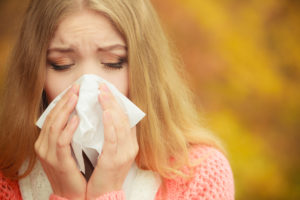 September may be the month to consult an allergy specialist Centreville VA patients turn to, as ragweed pollen counts peak and wreak havoc in allergic individuals in the
September may be the month to consult an allergy specialist Centreville VA patients turn to, as ragweed pollen counts peak and wreak havoc in allergic individuals in the 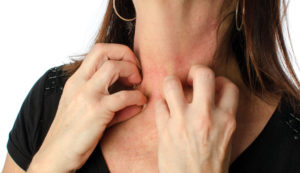 Everyone has had an itch here or there, but as an allergist Washington DC patients rely on might attest, generalized itching (itching all over the body) does not occur in everyone.
Everyone has had an itch here or there, but as an allergist Washington DC patients rely on might attest, generalized itching (itching all over the body) does not occur in everyone. 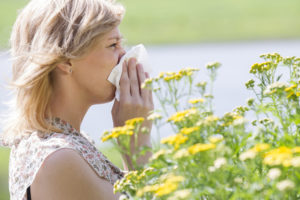 As the Summer draws closer to an end in Gainesville, VA, Tysons Corner, VA, Falls Church, VA, and the rest of the Washington, DC metropolitan area, you may be searching for an allergist in Arlington, VA as certain allergens become more prevalent which tend to cause an increase in allergy symptoms in certain allergic individuals. In the Washington, DC, Northern, VA, and Maryland metro area, mid-August marks the time of the year when ragweed begins to pollinate. The
As the Summer draws closer to an end in Gainesville, VA, Tysons Corner, VA, Falls Church, VA, and the rest of the Washington, DC metropolitan area, you may be searching for an allergist in Arlington, VA as certain allergens become more prevalent which tend to cause an increase in allergy symptoms in certain allergic individuals. In the Washington, DC, Northern, VA, and Maryland metro area, mid-August marks the time of the year when ragweed begins to pollinate. The 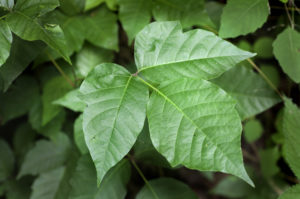 The offending oils can be found on the leaves, stems, flowers, and roots of these plants. Exposure to even a small amount of urushiol can result in a severe rash in susceptible people. Touching the plants directly or indirect contact through pets, tools, and/or clothing can lead to the rash. Airborne exposure can also occur especially when the plants are burned.
The offending oils can be found on the leaves, stems, flowers, and roots of these plants. Exposure to even a small amount of urushiol can result in a severe rash in susceptible people. Touching the plants directly or indirect contact through pets, tools, and/or clothing can lead to the rash. Airborne exposure can also occur especially when the plants are burned.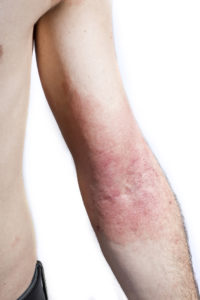 Thoroughly rinsing the exposed area with large amounts of warm water as soon as possible after known contact with plants may help remove the offending oily resins to some extent. After the rash appears, some helpful treatments consist of the following:
Thoroughly rinsing the exposed area with large amounts of warm water as soon as possible after known contact with plants may help remove the offending oily resins to some extent. After the rash appears, some helpful treatments consist of the following: